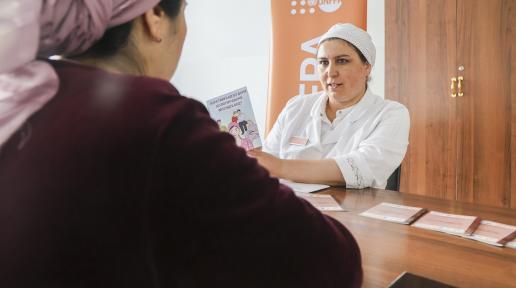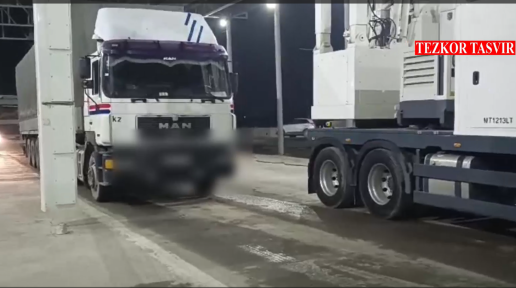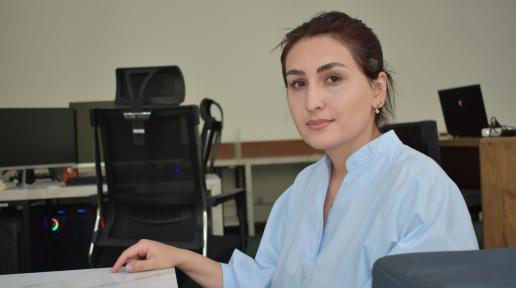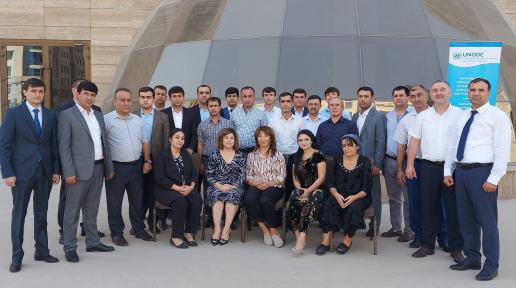Story
29 September 2025
Mushroom Production that Changed Lives
Valijon Mirzoev, a farmer from a small village of Kharangoni miyona, whose innovative approach to mushroom farming transformed not only his life but also the lives of those in his family. “I began to sell mushrooms at local markets and to nearby restaurants in Dushanbe city and Bokhtar town, where I found a ready customer eager for fresh, organic produce. During the spring season this year, I harvested about 1,000 kg of mushrooms and sold TJS 35,000 (around USD$3,600), which I am satisfied with this profit. This amount of money can support breadwinners to feed their families without going into migration”, says Valijon. In the mountainous district of Varzob, where agriculture has been less developed due to the lack of arable land, the untapped potential of alternative farming methods is gradually gaining recognition. Among these methods, mushroom cultivation stands out as a lucrative venture that requires relatively less space and investment. This is the story of 21-year-old Valijon Mirzoev, a farmer from a small village of Kharangoni miyona, whose innovative approach to mushroom farming transformed not only his life but also the lives of those in his family. Usually, unemployment makes the people in his area, like many others, travel to Russia for seasonal migration, but Valijon acted differently.As a young economist, Valijon realized that the conventional methods of farming in his region were often met with challenges such as fluctuating market prices and unpredictable weather patterns. In search of a sustainable solution, he stumbled upon the idea of mushroom cultivation—a venture that would lead him to success beyond his imagination.In 2024, after completing his degree in accounting and digital economy at the Tajik National University, Valijon practiced his banking knowledge in Tajikistan’s Humo Bank. But after receiving information about the World Food Programme (WFP) and its support to local producers and farmers, it was very interesting for him to participate in innovative projects. Especially, his interest in mushroom cultivation was increased during a workshop organized by WFP and its agronomists, which highlighted the high demand for mushrooms in urban markets. With limited resources but immense determination, Valijon decided to experiment with growing mushrooms. He started small, utilizing a portion of his family’s land and an abandoned shed that he converted into a makeshift mushroom farm. He received the mushroom bags and construction materials for producing room from WFP with the support from the American people. Later, he invested his savings into buying mycelium (seeds) and setting up the necessary infrastructure to maintain the ideal growing conditions.The initial phase of Valijon’s venture was fraught with challenges. The learning curve was steep; sometimes he faced issues with humidity control. Additionally, the lack of knowledge about marketing his produce posed another hurdle. Valijon realized that he needed to equip himself with better information and skills. He turned to online resources. He wanted to attend more workshops and seek advice from experienced mushroom farmers outside of Tajikistan. He used the money earned from his farm. He also visited some mushroom cultivation ventures for practical classes. After several attempts, he finally succeeded in harvesting his first substantial yield. The satisfaction of seeing his hard work come to fruition was immense. Valijon quickly learned how to refine his techniques, focusing on quality production and efficient harvesting methods. With the growing demand for his mushrooms, Valijon reinvested his profits into expanding his operations. He plans to introduce different varieties of mushrooms to further increase his customer base. His farm became a hub for knowledge exchange, where he would teach other farmers about mushroom cultivation and share his experiences.In 2025, WFP conducted a master class for mushroom producers to re-engage and motivate them to strengthen their technical capacity. The master class was led by Valijon Mirzoev and brought together other project beneficiaries from Shahrinav, Yovon, and Varzob districts and Vahdat town for peer-to-peer learning. Through this initiative, WFP was able to connect the participants with a successful peer, fostering knowledge exchange and peer-support to sustain their businesses. Today, Valijon Mirzoev’s mushroom farm is a thriving enterprise that generates substantial income, not only for himself but also for many families in his village. His journey is a testament to the power of innovation in agriculture, demonstrating that alternative farming practices can lead to sustainable livelihoods. “Valijon’s journey is a powerful example of how innovation, persistence, and technical support can unlock new opportunities for young farmers in rural areas. His success in mushroom production proves that even in regions with limited arable land, sustainable agriculture is not only possible — it can thrive. By turning a simple shed into a productive farm and sharing his knowledge with others, he is helping transform local food systems and inspiring a new generation of agricultural entrepreneurs”, says WFP agronomist Dalerjon Nabiev.“Now, Valijon is not only a mushroom producer, but he also produces mushroom bags for selling and provides advice to other farmers regarding mushroom production and preparation of mushroom bags. Looking ahead, Valijon plans to further expand his farm and engage all seven members of his family in dealing with mushroom cultivation”, says Muqimjon Muminov, project beneficiary from Shahrinav District who attended Valijon’s master class.This journey from a young farmer to a successful entrepreneur in mushroom cultivation is a compelling narrative of resilience, innovation, and community empowerment. Valijon’s story highlights the potential of alternative farming practices in transforming rural economies and inspiring a new generation of farmers. As Tajikistan continues to grapple with agricultural challenges, Valijon's success serves as a beacon of hope, illustrating that with the right approach, the future of farming can indeed be bright.






